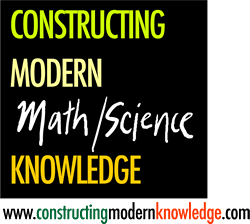Dan Meyer's blog,
dy/dan shares the thoughts, insecurities and efforts of a terrific young urban educator via words and remarkable videos. His blog is worthy of your attention.
Dan should me commended for making his thinking public and discussing issues rarely explored in public.
A recent blog started out by wondering if Washington D.C. Chancellor Michelle Rhee's tactics and hostility towards teachers would be fruitful in the public schools of the nation's capitol.
Along the way, Dan asked a serious question about how to improve his students' geometry test scores, regardless of how each of us might feel about the value or use of standardized testing.
Here is my first, albeit incomplete, set of recommendations.
Dear Dan:
First of all, I wish to share my admiration for the sincerity and courage inherent in your question.
I got my 07-08 Geometry results back yesterday and they were not acceptable. Too many kids listing along at Basic levels, not enough kids rising to Proficiency.
My question to so many commenters here: what would you have me do with that data?
Asking this question is critically important. You can't be good at anything, much less teaching, without being reflective.
First, let's assume that the test actually attempts to assess "geometry." Many standardized tests give kids a score for something like "algebraic reasoning" when the test only included one question on the topic. It would also be nice if you continued to work with the same students tested. Having test results after the kids move on to another teacher is hardly useful as a corrective instrument.
Since you can't cure poverty or the other socioeconomic and cultural obstacles experienced by your students, solutions will need to be relegated to what you do in your classroom.
One mistake frequently made when confronting such issues as your geometry scores is to assume that blame lies with either a) the teacher or b) the student. There is a third player at work here - the curriculum. Why don't we ever challenge the assumptions underlying the curriculum?
While I realize you have a limited ability to replace or abandon the curriculum, it is equally true that doing the same thing louder will not achieve a different result.
But both of your responses dodge the question. From the perspective of someone opposed to the accountability measures of NCLB and skeptical of standardized tests, what would you have me do with the knowledge that (e.g.) four out of ten students I taught last year couldn’t find the volume of a unique swimming pool?
Why should students be able to find the volume of a swimming pool? How often do you have to do that? I never calculate unique swimming pool volume.
How many of your students have access to a swimming pool or even swim? (Oh, I know. Tests are supposed to be culturally neutral.)
It's worth asking yourself the question Seymour Papert used to challenge my own teaching and curriculum planning. "What can they DO with that?"
Such a question goes well beyond matters of relevance. Knowledge is constructed as a consequence of experience. What sorts of experiences do your students have?
I'm not a Utopian. I know that you have to "teach" the kids "math." However, you may need to ensure understanding before covering the curriculum. Perhaps you can change the order of the curriculum. Perhaps you can supplement the curriculum with more imaginative texts (including trade books written by experts). Perhaps you can use Logo with kids - still for my money the richest environment for developing geometric reasoning. Perhaps you can find a way for students to be less hostile to the curriculum being shoveled in their direction. In any event, you need to take the kids from where they are and help them move forward.
You may need to change everything, just to "catch-up!"
The research of Constance Kamii and others, plus your own common sense indicates that "practicing" more pool volume problems is unlikely to help students improve their scores, or more importantly understand volume. Check out Kamii's books here. Her videos are available from Teachers College Press.
In that spirit, here are some resources and practical ideas you might consider:
As Papert and Harel teach us, "It's OK to worry about what to teach Monday, as long as what you do points to what you want to do someday." Don't get distracted by the immediacy of the curriculum or tests. I hope this helps.
Labels: dan meyer, Gary S. Stager, Logo programming, math
 A young vibrant gifted urban science teacher expressed a concern to me yesterday. The teacher suggested that he feared being forced to teach "ELA" (English Language Arts) since that is all the district cares about given the testing mania destroying our nation's public schools.
A young vibrant gifted urban science teacher expressed a concern to me yesterday. The teacher suggested that he feared being forced to teach "ELA" (English Language Arts) since that is all the district cares about given the testing mania destroying our nation's public schools.
